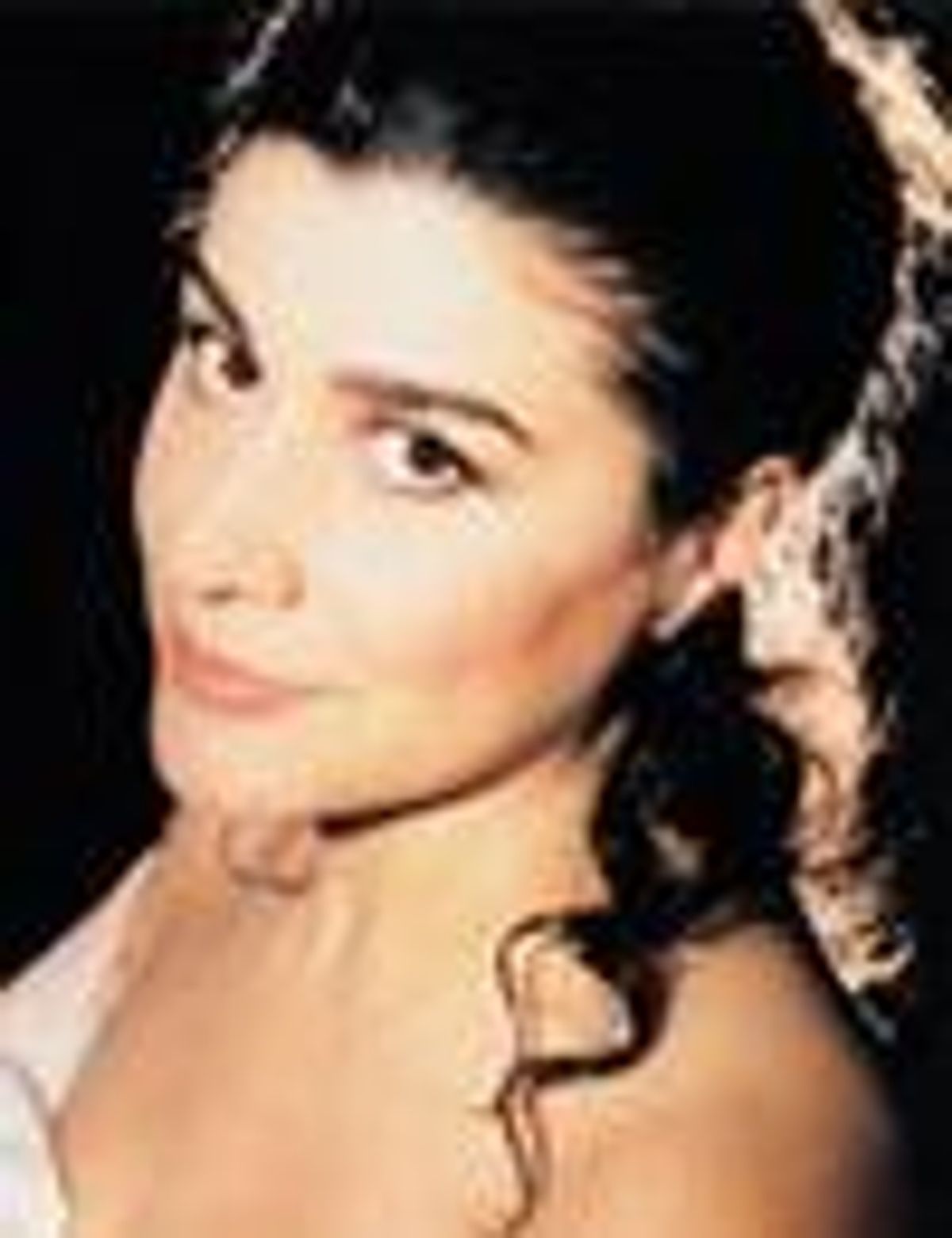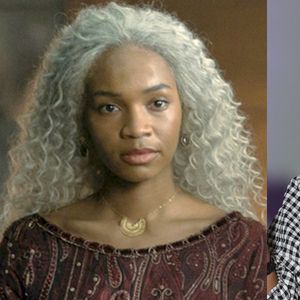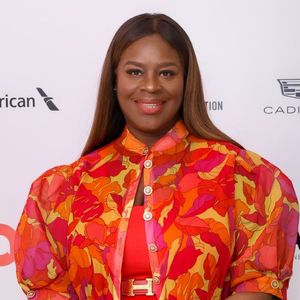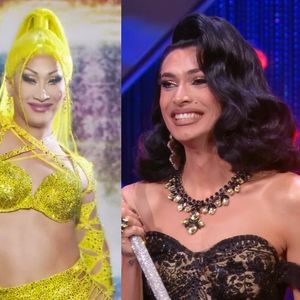Los Angeles Opera
started its 20th season with a quintet of efforts that
ranged from the ridiculous to the sublime. First there was
The Grand Duchess, a Jacques Offenbach
piece of comic operetta that I was looking forward to
with a mixture of desire and dread (more about those
conflicting emotions later).
Next came Ruggero
Leoncavallo's grand (if brief) Pagliacci,
which was staged by Franco Zeffirelli six years ago in
an eye-popping display and was--this time
out--to star two singers I am mad for, Roberto Alagna
(be still, my heart!) and Angela Gheorghiu, in its splendid
and colorful, and extremely well remembered, revival.
Act III was
performed solo by the mezzo-soprano of the century, if I may
be so bold, Cecilia Bartoli. The great artiste sang a
dazzling recital of arias from her recent equally
dazzling CD release, Opera Proibita. In the
presence of such great artistry, words fail me. Oh,
but I'll gush nevertheless...later on.
Next up was
Giacomo Puccini's famous Tosca, a standard of
the operatic repertoire if ever there was one. Alas, I
missed it. I'll have to see Floria Tosca hurl
herself over the wall some other time. Shucks!
Last came a piece
of Richard Wagner's, Parsifal, which I was
looking forward to with mixed emotions. Parsifal is
Wagner's final opera, one of his most melodic,
and well worth the nearly five-hour sitting time it
entails. However, this was slated to be a Robert Wilson
production, and while I always enjoyed his efforts back east
at the Brooklyn Academy of Music, staging the music of
composers such as Philip Glass, I've found his
two operatic endeavors--Puccini's Madama
Butterfly (due for revival this season) and the
aforementioned Parsifal--a shade too
high-concept for my liking. I hope to elaborate later,
but it won't be easy. Heck, it wouldn't be
easy given a traditional production of
Parsifal, and--trust me--this was
anything but.
Lest you think I
am a slave to the Los Angeles Opera, I should mention
that early in the season (for the opera, that is, but late
for the Hollywood Bowl, where I had the pleasure), I
saw once again one of my all-time favorite '80s
goth bands, Dead Can Dance, in their first
ensemble appearance here in, oh, 600 or 700 years. Lisa
Gerrard, Brendan Perry, et al. were supported by the
French pop group Nouvelle Vague (which means
"new wave," for those of you who've
lost your French), and a more stellar evening would be
hard to imagine in terms of screaming-meemie old-time
thrills.
My friend Flicka
World-renowned
mezzo-soprano Frederica von Stade, who assumed the title
role in Los Angeles Opera's production of The
Grand Duchess, has been one of my favorite
singers for about a decade and a half. Most of the
adoration came from my love for Von Stade's recording
of Joseph Marie Canteloube's Songs of the
Auvergne, which caused me to fall instantly in
love with her smooth, mellow tones. I heard that recording
the day the 1992 Los Angeles riots erupted, by way of
historical setting.
In addition to
hearing her do the Auvergne songs, I saw her in a
production of Dead Man Walking, singing the role of
the doomed prisoner's unfortunate--nay,
pathetic--mother. At that time my friend Ray,
who took me to the presentation, knew the singer who had the
role of Sister Helen Prejean (alas, I have forgotten
her name; suffice it to say it wasn't Susan
Graham, who created the role in New York). So, because my
friend knew the lead, we went backstage after the opera, and
there I met Ms. von Stade.
Ray had long ago
told me that Ms. von Stade's nickname is
"Flicka," which apparently means
something coy in Swedish, if that is indeed where the
singer, her family, or her nickname comes from (I feel
certain it wasn't from the horsey TV show of
the '50s). Starstruck fool that I am, I was
overcome to be mere inches from Flicka, and so it was with
great anticipation that I looked forward to seeing her
again, this time in a piece by the French composer
Offenbach, whose The Tales of Hoffman is one of
my favorite operas.
The Grand Duchess is titled La Grande-Duchesse de
Gerolstein in French, but we were seeing a
presentation of the comic operetta wherein the
speaking parts were done in English and the singing in
the original French. Worse still, I felt, although my date,
Jerry, disagreed with my somewhat prejudgmental
dismay, the entire production was being handled by
Garry Marshall, TV's producer of Laverne &
Shirley and Mork & Mindy. Never a fan of the
the former but a great fan of the latter, I
nevertheless looked askance at Marshall's
treatment of Offenbach's piece, although I have to
say that his production had great appeal for the
non-opera-loving masses, and I found myself
greatly outnumbered.
Here the Duchess
von Stade was joined by baritone Rod Gilfrey as Prince
Paul, formerly seen in Los Angeles in Mozart's The
Magic Flute and Benjamin Britten's
Billy Budd, to name just two. Lately he's
seldom been seen on this coast, to which I can say only
that's indeed a pity. Scores of others joined
this distinguished duo, and I shall get to them if
space permits (read: if I don't run out of steam).
Some were fine, others not so, and
remember--I'm easy.
Perhaps most
outrageously of all, Mr. Marshall had decided that this
operetta needed the ghost of Offenbach himself to lend comic
oomph where "needed." So we were
treated to Jason Graae, clad in white, as the ghostly
Offenbach, doing everything but drop his drawers in the
pursuit of low comedy (but, now that I think of it,
such an action might have carried me a little further
than all the borscht belt humor I was dodging). Hey, I
love Graae doing comedic turns with the Los Angeles Gay
Men's Chorus, but keep him off of Buff
Chandler's stage when an opera or an operetta
is being staged--please. His
"bits" felt like commercials somehow
interjected into an HBO showing of an Ellen DeGeneres
laugh-a-thon. They just weren't needed.
The story of this
operetta is so silly that you'd think I was
complaining about too much mayo in my pimiento cheese
sandwich, but perhaps I've become more of an
opera queen than I had realized. I've always
characterized myself as an opera lover, but in this
case that designation applied to my date. I just knew
Penny Marshall and Cindy Williams were backstage
struggling into their Laverne and Shirley
costumes, and at any moment Garry M. would cue them to come
out doing a misplaced chorus of "Shlemiel!
Shlemazel!" (But that is rather what Jason
Graae was doing, come to think of it.)
In all fairness
to the memory of Offenbach, his French dialogue of two
centuries ago might've been foolish, but I think it
would sound like Racine compared to the pointless
drivel that Marshall threw at us. It's no
wonder that the performers onstage seemed to be having even
less fun than those rarefied few of us in the
audience. As I said earlier, my date loved it.
Well...a chacun son gout, one
sniffs in such instances.
But back to the
story: The duchess's nation is at war with
someone, much as we seem always to be these days.
Anyway, in a nutshell, The Grand Duchess
concerns a young private (Fritz, as done by Paul
Groves) who is affianced to a peasant girl, Wanda (Constance
Hauman). They are very much in love, but the duchess, who
needs a 12-step program if ever a title character did,
finds the private ever so appealing (and, well, Groves
is) and she just keeps promoting him, causing great
consternation among her various generals and barons (among
whom were John Cheek, Anthony Laciura, and Paul Vogt). Most
disturbed of all by this behavior is Prince Paul, who
has for some time been attempting to win the
duchess's hand and, in the process, has taken a
beating at the hands of the tabloids, who mock him for his
failures in love.
As the erstwhile
Private Fritz is promoted steadily by the infatuated
duchess, the prince and several barons--along with a
recently demoted general--are doing a little
politicking of their own to get "General"
Fritz returned to his proper rank (not to mention his proper
love interest, Wanda). In a finale that could come
only from a master of TV schmaltz, all is put right at
the end, and the two loving couples (at least those we
know about; there was, after all, a dog) are joined in
holy matrimony. And now a word from our sponsors...
Fear of clowns
After the
nonsensical Grand Duchess, it was heartening to be
treated to a serious opera, Leoncavallo's
Pagliacci, which starred two sparkling
performers. The leads were sung by the husband-and-wife
team of Roberto Alagna and Angela Gheorghiu (as already
mentioned). While it's true that Gheorghiu
could sing Alagna right off the stage if she were to
let go, he is the possessor of one of my favorite tenor
voices, even if it is more suited to a bel canto
repertoire than the seriousness of Pagliacci.
(And, kids, he's a doll. Really!) Still, he acts
wonderfully, and in this modernish sort of retelling of
Othello he kept our pulses at fever pitch. Ms.
Gheorghiu, on the other hand, had to tamp down her
vocals, but she has all the presence of a great diva and
the beauty that her role (and her luscious husband) demand.
Fun fact to know and tell: Leoncavallo not only
composed the music but wrote the libretto of
Pagliacci based on a criminal case that his father, a
district judge, tried sometime in the 19th century. (The
opera was first presented in 1892, the year my
grandfather was born. Ah, my lost youth!)
The Franco
Zeffirelli production, which could easily have been taking
place in an alley of the East Village in New York City,
remained as quirkily dazzling as when it was
originally produced, and by the time Canio (Alagna)
kills not only fellow performer Silvio (Mariusz Kwiecien),
who has cuckolded him, but his own wife, Nedda (Gheorghiu),
in a jealous rage (they're all street
performers, some clowns, some not), our eyes and ears
have been swept up into the stratosphere of operatic excess,
producing in us a state of arousal bordering on the erotic.
I'm
usually not a great fan of reruns, but when it is an
offering as sumptuous and alluring as
Pagliacci, I say, let 'er rip. I have
many more viewings of this opera to go before I am even
remotely bored, and when it is produced as charmingly
as this offering by the Los Angeles Opera, I'm
not complaining, especially when it is cast as wonderfully
as the two productions I have seen at the Dorothy
Chandler Pavilion. La commedia e finita?
Never. Bravo! Encore!
Go for Baroque
OK, class, take
note: During the early 1600s, the extremely powerful
Vatican (which makes present-day churchmen look downright
sissified) declared opera to be a forbidden venture.
That Georg Friederich Handel, Alessandro
Scarlatti, and Antonio Caldara nevertheless ventured to Rome
to write operas seems almost foolhardy, but let's be
generous and simply call it terribly brave.
During this
Baroque period, many great pieces of music were composed and
performed, and thanks to the wide-ranging interests of
Italian superstar Cecilia Bartoli, these pieces of
early operatic music have been resurrected and
enchantingly sung as few other than Ms. Bartoli could do.
(I'm frankly at a loss to think of anyone who
might have attempted the project with her success, to
be quite honest.)
In a
one-night-only recital, Ms. Bartoli, backed by the Orchestra
La Scintilla of Zurich Opera, sang pieces from her CD
Opera Proibita, and she achieved with her
voice all the thrills of the great chariot race in the
1959 movie of Ben-Hur. Rocking her hips in a stunning
emerald gown (with a train, no less), Bartoli demonstrated
just why she is considered the treasure of operatic
singing that she is, a performer with the cachet of a
Maria Callas and a much broader appeal than La
Divina's, if you'll indulge me.
I have heard
several people say they don't like the way Callas
sounded (I'm not one of them, at least not
since I learned what opera was all about), but I have
never ever heard anyone trash the sound
produced by the zestful Bartoli. Her performances are not
only polished but infectiously appealing. So appealing
was this recital that by the end of the evening we
were all in near-hysterics in the opera house at the
Los Angeles Music Center.
This evening saw
the audience on its feet for one standing ovation after
another, and the wonderfully agile-voiced Ms. Bartoli earned
every round of applause, thrilling all of us present
not just with her vocal talents, which are practically
beyond description, but also with the sheer
good-natured gusto with which she trilled these arias by
Handel, Scarlatti, and Caldara. These
aren't simple Joni Mitchell ballads, kids, and
Ms. Bartoli sang one complex piece after another with a
delight that was as complete as anything I've
ever seen or heard.
And she never
stopped smiling, even while she was doing super-fast-time
vocally and hitting every note dead-on.
They say that
Callas inspired more than one heart attack among her
listeners. I can think of far worse ways to go than by
hearing Cecilia Bartoli popping a high C. Dearest Ms.
Bartoli, please don't be a stranger!
Vissi d'arte
I would be doing
the Los Angeles Opera a great disservice if I failed to
mention that in between Ms. Bartoli's recital and
Parsifal there was a production of Giacomo
Puccini's Tosca, an important operatic
standard which I missed due to ill health. (Oh, the miseries
of growing old!) All who saw this production (and to
whom I later spoke) found it quite enchanting, which
is to say they took care to rub salt in my wounds. But
I am hoping nevertheless that it was a full-house effort and
a piece that the Los Angeles Opera will revive before I
start to think I am Mamie Eisenhower,
which--trust me--could happen at any moment.
No, Noh Wagner!
Trying to find
the words to critique Los Angeles Opera's production
of Parsifal, Richard Wagner's last
opera, has had me tongue-tied for weeks. First let me
just say this: I adore Wagner, have never heard a note
he penned that I didn't crave.
But then let me
say this: Robert Wilson, much as I admire him outside of
the opera hall, should be shot.
As I stated in my
intro, I always liked his productions at the Brooklyn
Academy of Music, where his material was far more modern
than Wagner, generally ranging in the Philip
Glass-era of musical composition, for which his
quirky sensibility seemed perfectly suited. But to throw him
at Wagner seems almost sinful. He did things to
Wagner's "pure fool" that struck
me as unforgivable. Pretty? Often. But more often pretty
confusing.
This opera is a
piece that deserves an essay question on the SAT, so
involved and complex is its story. I shall try to do it
justice, but I will leave my comments about
Wilson's odd production till I am finished
here. To try to explain what he did is nearly impossible,
especially since--to tell you the truth--I
didn't get him at all.
Long ago there
was a gang of knights dedicated to preserving the Holy
Grail, from which Jesus drank at the Last Supper and which
Joseph of Arimathea then used to catch the blood of
Jesus as it dripped down from the cross. (Pretty!) But
let me not get carried away with my ex-Catholicism.
These knights of
the Grail have also been, at one point, the keepers of
the spear that the Roman centurion used to pierce
Jesus' side, but this relic has since fallen
into the hands of Klingsor (an excellent Hartmut
Welker), who is not just a failed former knight-to-be but a
sorcerer to boot. The basic problem is that king of
the knights Amfortas (Albert Dohmen) has been wounded
and lies gravely ill, and only the spear (which is in
Klingsor's possession) can restore him to health.
Needed to regain
the spear is what the knights call a "pure
fool" (i.e., Parsifal, performed with his usual
aplomb by the ageless Placido Domingo). Totally
mixing up the works are Gurnemanz (Matti Salminen), who
is way too harsh with the rather simple Parsifal, and Kundry
(Linda Watson, also excellent, especially given the
demands put upon her by Wilson's staging).
Kundry is a tormented woman who is tied both to the
knights of the Grail and to Klingsor. She ends up throwing
in her lot totally with the knights after receiving a
kiss from Parsifal, which Wilson never lets us see.
That Parsifal
should return from his encounter with Klingsor bearing the
spear and curing Amfortas should come as no surprise to
anyone who knows of the religious inspiration for this
opera, one whose performance Wagner had strict rules
about. For one thing, he forbade clapping till after act
II, and for another, he wouldn't consider letting
this masterpiece travel--that is, it could be
performed only at the Bayreuth Festspielhaus, home to
all of his operas. Parsifal is a piece that Wagner
intended as being a depiction of the triumph of good over
evil, and that's what it is.
As for Wilson, I
will give him a few props, but only a few (and remember,
this was spread out over a nearly five-hour period). OK, his
backdrop and his lighting were stunning. (If only he
didn't insist his performers move with such
calibrated care, maybe we could talk.) Wilson borrowed
heavily from Japanese Noh theater in staging this
piece, which is already a mixture of Christianity and
Buddhism. Thus we have a young boy sleepwalking across
the stage many times, moving only his hands as though
he were part dolphin.
Flower maidens,
who have loved many of the wicked knights of Klingsor
that the young Parsifal slew, make an enchanting spectacle
as well as a glorious sound in their white pod
costumes. And Klingsor in his castle, an aperture cut
into the cyclorama at the back of the stage, is
marvelous, reminiscent of the Wilson I always loved back in
New York.
Listening to
Wagner as often as I do, I don't generally find him
confusing, but here I must admit I did. Though Kent Nagano
conducted with sublime poise and all the singers
shone, Wilson did a great deal that was startlingly
new, removing Parsifal from the realm of clunky
armored knights and giving this production a terribly
imaginative look. But with Parsifal making (I
think) its debut appearance at the Music Center, I
feel we might have benefited from a tad less modernity
and returned successfully to the tried-and-true old school.
As they sing in Fiddler on the Roof:
"Tra-DI-tion! Tradition!"
Dancing queen
For years I have
had two main favorite groups whom I first heard in the
1980s: Cocteau Twins and Dead Can Dance. It's true my
love for Cocteau Twins got a head start on Dead Can
Dance through hearing Elizabeth Fraser sing
"Song to the Siren" on the first This Mortal
Coil CD, It'll End in Tears, back around
1984. But very soon after that signal moment I was
given a tape of Dead Can Dance's Spleen and
Ideal, and I found it likewise fascinating. Their
work on It'll End in Tears had nothing
like the impact of the Twins' offering, but still I
sat up and took notice. For one thing, I had never
heard a singer with the odd (but pleasurable) vocal
qualities of Lisa Gerrard, one half of Dead Can Dance
(the other being Brendan Perry, whose voice is much more
accessible). Although it is generally Gerrard for whom
the crowds go wild, I am very fond of Perry's
vocal talents as well. And though Gerrard is known for
her playing of the Chinese dulcimer, Perry has that ability
as well. So there you are.
Over the years I
have collected every single recording Dead Can Dance has
ever made, and when one of their songs pops out on my CD
player, it always makes me happy. So their concert at
the Hollywood Bowl, just up the street from my house,
was an event I couldn't miss, even if tickets
were costly enough to feed a family of four for a month.
And what songs
did they do? Well, I have never been able to keep the name
of any of their tracks in my head, so odd are they (as is
also the case with Cocteau Twins), but I can tell you
they did material from every CD they've ever
released, including their eponymous debut CD, Aion, The
Serpent's Egg, Within the Realm of a Dying Sun,
Spleen and Ideal, Spiritchaser, Into the
Labyrinth, and Toward the Within.
Have I missed
any? I hope not, but my memory is not what it used to be.
Still, whether I've forgotten CDs or not, they were
simply magnificent, and I was walking on air for days.
Call me old school, but that is definitely not how
Dead Can Dance sounded. Their music is timeless.
Opening for Dead
Can Dance was a French pop group called Nouvelle Vague,
and yes, they were new wave, but with a definite twist. To
hear them do Joy Division's "Love Will
Tear Us Apart" in a sort of hip-swinging French
manner (though they sang in more than creditable English)
was pure magic, as was listening to their version of
Depeche Mode's "Just Can't Get
Enough." They also included such classics as Dead
Kennedys' "Too Drunk to Fuck" and
many other tunes whipped up from new wave raucousness to a
bossa nova swirl. Tres bien, Nouvelle Vague!
Vous regnez.



















































































